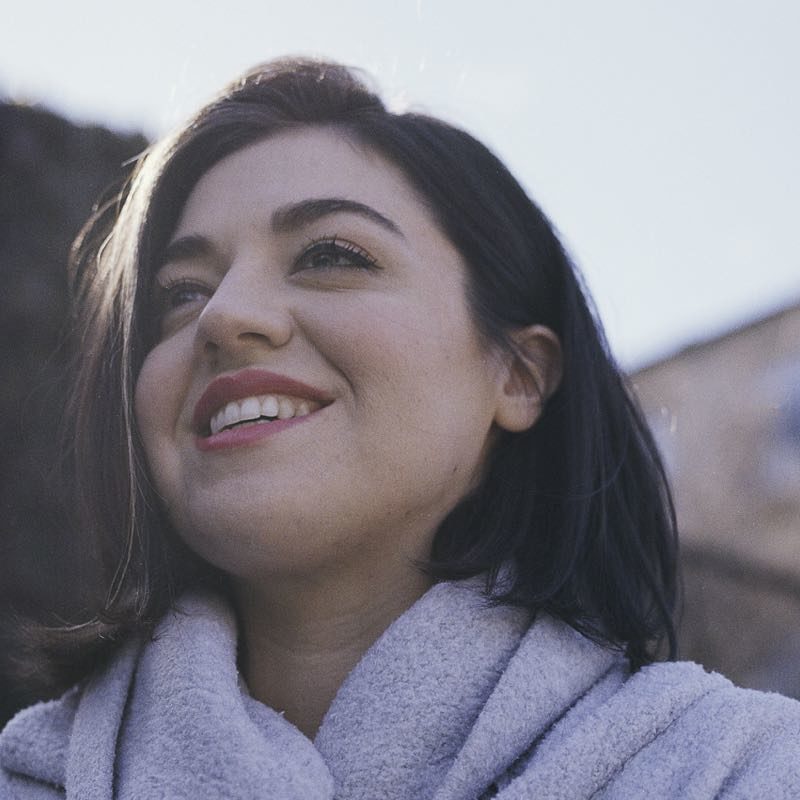Barrett Wilbert Weed on Mean Girls and More
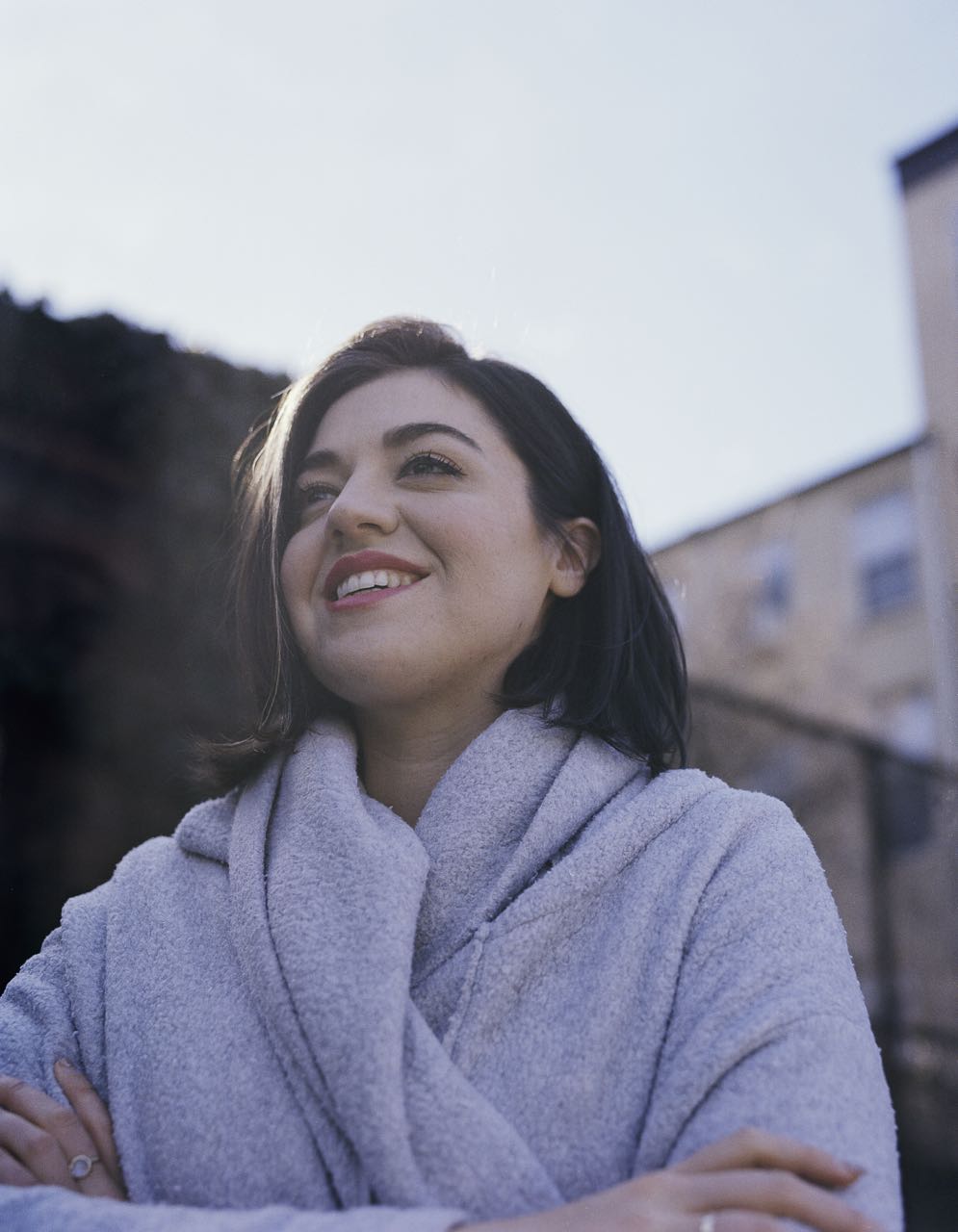
Written by Victoria Myers
Photography by Tess Mayer
March 27th, 2018
When the movie Mean Girls was released in 2004, it quickly became a cultural touchstone. Now, over ten years later, it’s a highly anticipated Broadway musical. The musical has a book by the movie’s creator, Tina Fey (maybe you’ve heard of her), music by Jeff Richmond, lyrics by Nell Benjamin, is directed by Casey Nicholaw, and has a cast full of actors who, for many, Mean Girls is the biggest show they’ve ever appeared in. One such actor is Barrett Wilbert Weed, who plays the role of Janis, the artsy, not-so-popular girl. Barrett previously appeared on Broadway in Lysistrata Jones, Off-Broadway in Heathers: The Musical, and regionally in Cabaret at the Signature in D.C. We recently spoke to her about creating the role of Janis for the stage, what Mean Girls has taught her about leadership, having a life outside the show, and more.
Going back to when you were first starting rehearsals for Mean Girls, what was your way into the character, and did you try to ignore the movie or did you go back and rewatch it?
Most of the cast, at this point, have been with the show for about a year. We did the lab, and then D.C., and now Broadway. I love the movie. I’ve seen it a million, million, million times, and I love Lizzy Caplan so much. I think whenever you’re adapting something from a film into a musical, you can’t really ignore the film that already exists, but I think it’s pretty important to totally redo it and make it what you want it to be, and sometimes that overlaps with what’s already been done and sometimes it doesn’t. I think Lizzy Caplan is amazing, but I could never do the performance that she does in that movie, so I had no choice but to make up my own version of it.
How did you start when you were looking at the script? Did you look for ways the character was similar to you or different from you?
I think when you’re going in for different characters, it tends to be characters that bear some kind of resemblance to your own personality, but she’s definitely very different and a lot cooler than I probably was in high school. I think we definitely have a similar worldview. I think she has pretty decent priorities, which is rare to find in a high school character. It’s hard for me to completely be able to identify what is similar and what’s different about the characters that I play in relation to my own personality, but I think if I understand them, then they’re probably pretty similar to me.
Do you use anything visual to help find your way into the character?
For this particular character, she’s an incredible visual artist, so it’s been really fun to see who they’ve hired to create all of the physical pieces of art that Janis is supposed to have made. So many of my costumes are hand-painted by this one artist who’s really, really, really amazing. There are huge animal costumes in the opening of the show—I don’t think an audience would necessarily pick up on this, but those are supposed to have been made by Janis. I have a big art satchel that’s supposed to have been made by the character, too, and all the costumes that have been painted on. And then there’s a portrait of Damian that’s in the opening of Act II that I don’t think anyone actually ever sees but me, because I’m painting him over the course of that scene. It’s been really, really useful to have all those different physical pieces at my disposal.
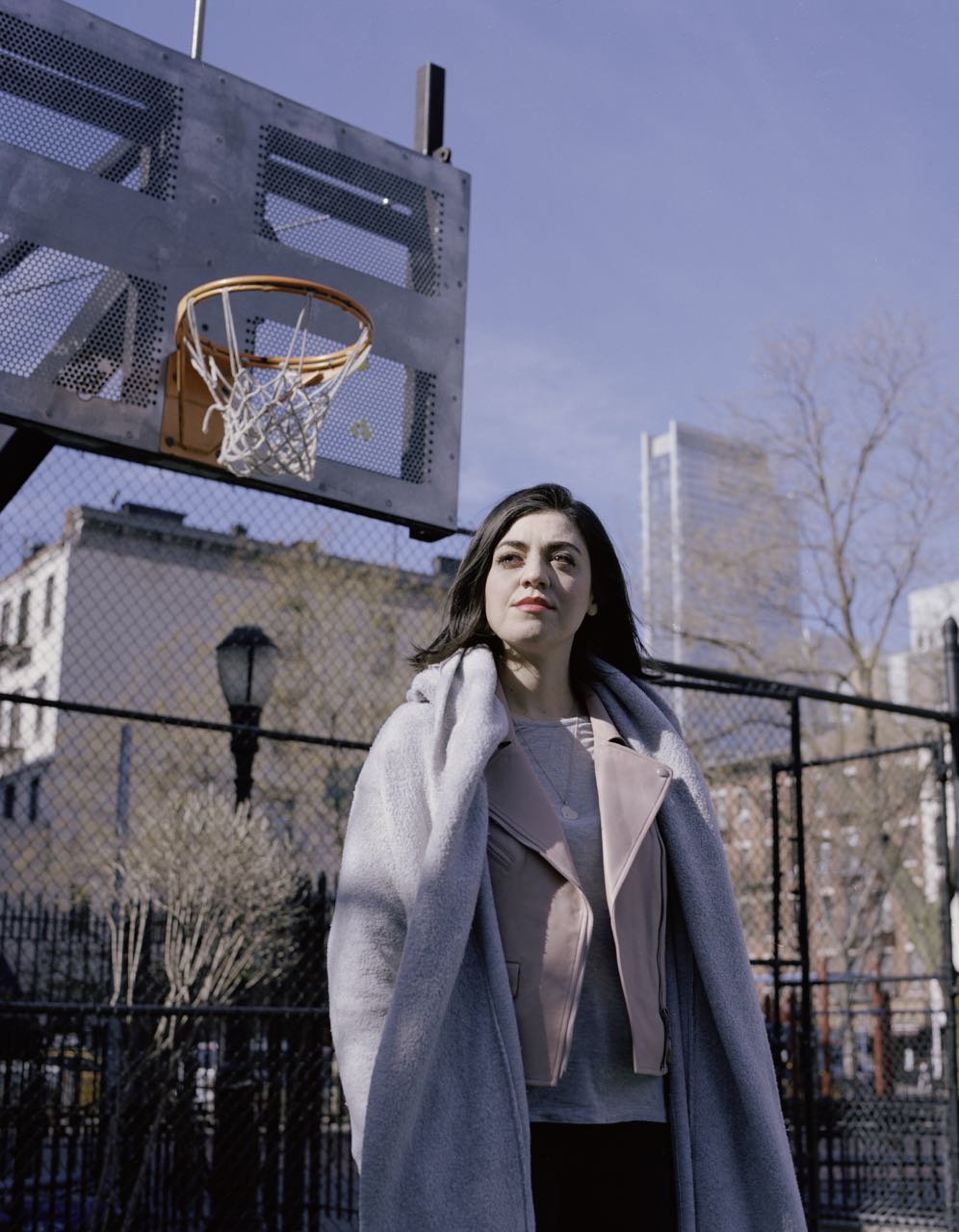
One of the big changes from the movie is that your character is now the one telling the story. For you as an actress, has that presented any type of challenge or has that affected your process?
I’ve definitely narrated in shows before, and I really like doing it because it gives you this weird opportunity to literally connect with an audience instead of just emotionally or broadly connecting. But it’s interesting when we’re doing it in the middle of scenes when you have to stop the entire scene and address the audience and then get back into it. I don’t think it’s super challenging. I think it’s actually really nice for the Damian and Janis characters to have that relationship with the audience, because I feel like those are the characters that people see themselves most in. I think it makes a lot of sense to have them address the audience.
Mean Girls was a huge cultural phenomenon and it’s always used stereotypes and archetypes as part of its construction. For the musical version, do you think about archetypes and how you want to lean into them or where to subvert them?
I think just because of where we’re at right now culturally, especially with the current presidential administration and how there’s a huge youth blowback happening, I think Janis represents a lot more than she maybe used to, which is a cool position to be in. I think also the way she’s been written for this rendition of the story is definitely not a stereotype. I think that the Damian character in the movie was a little bit more of a stereotype, but I think the same goes for him now, too. He’s definitely a character. I think they hired Grey [Henson] and I specifically to redo the characters and put our own spins on them and try to ground them in reality as much as possible.
It’s a very different time now than when the movie came out, and even from a year ago.
A lot has happened in the past year. I think in terms of her sexuality, too, we’ve kind of left it purposely ambiguous so that people can project what they want to project onto the character. But I think the way that she’s been written is remarkably grounded for someone that age, and fairly intelligent and very outspoken. She makes a lot of declarative statements, which I think is more usual for teenagers in this era and in this generation. It’s hard to explain in a finite way what it is about that character that is so 2018, but that’s just the through-and-through vibe that I get from her, even now that we’re getting changes and making edits and making everything really neat and tidy in terms of the show-scape. She’s a very modern teenage girl.
At this particular moment in time, what do you find the most interesting thing thematically about the show? And have you found that that’s shifted over time?
I think there’s a more global mindset in the show now. I think when we were first getting started adapting the show for Broadway, it was very much contained to a high-school experience and contained to, “This experience is only relevant to a high-school student,” and now I think because of everything that’s happened in the past year since we’ve started working on it, it’s pretty clear that it’s relevant to everybody, and not [just] of a certain age or a certain environment. It’s pretty relevant to anyone’s life, because I think a lot of people are feeling a little bullied by the people who are running this country right now, and I think it’s interesting to relate what’s going on in our government with what’s happening in this show and how to deal with it and what works and what definitely does not work.
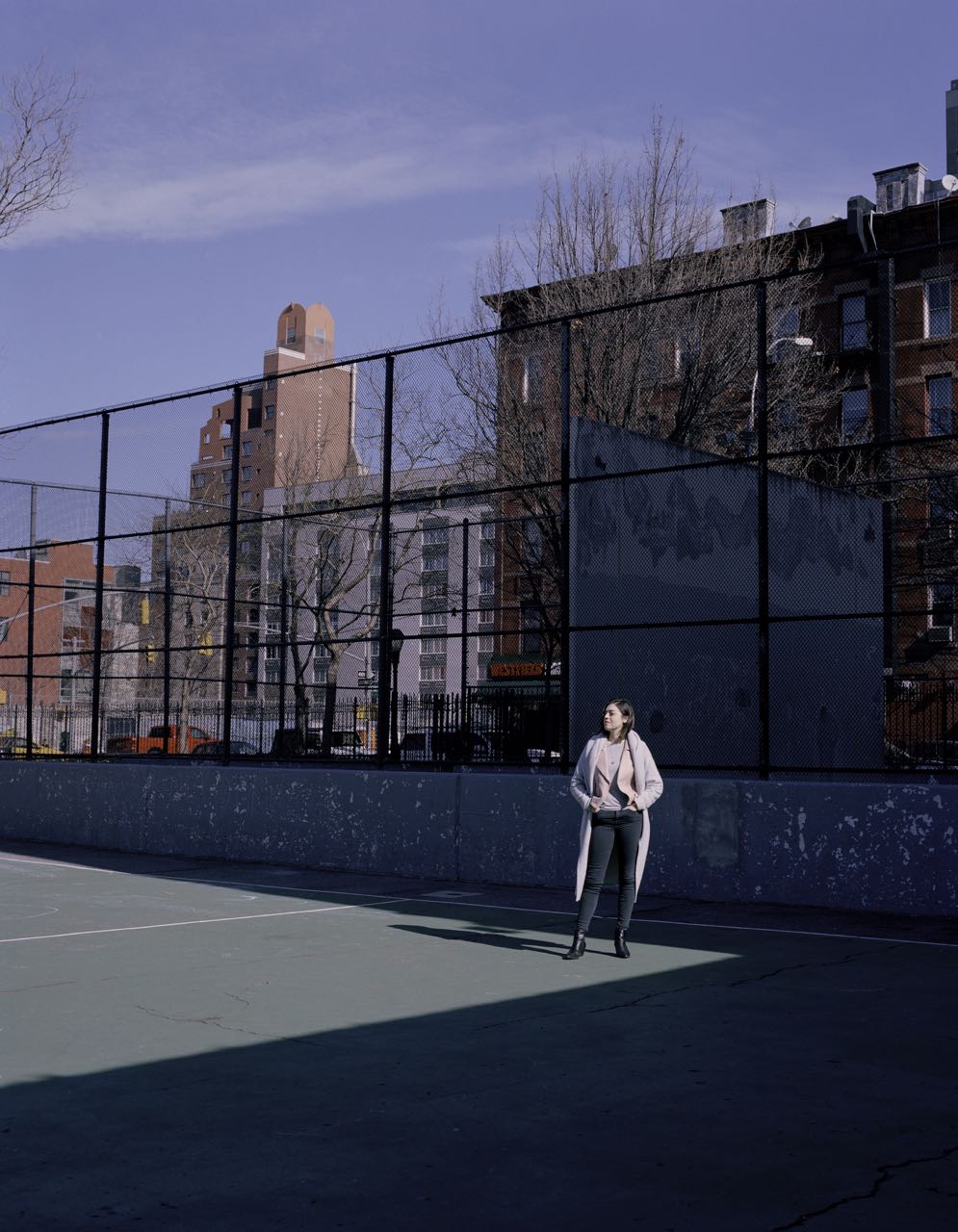
There’s more to doing a show than just doing the show. You have rehearsals during the day, press, and having some sort of personal life. What’s your process been like for learning how to balance all that and figuring out what your boundaries are for things?
Well, after this interview, I’m going to the ENT to get shot up with a bunch of medicine. Hopefully it’ll just be vitamins today, but you never know. I have the greatest group of friends. I never could have imagined when I was going through middle school and high school, where I had zero friends, that once I became an actual adult, I would have really, really, really incredible people around me. It’s really important to carve out a life for yourself outside of whatever job that you’re doing, because if you’re not having life experiences, you show up for work and have nothing to give. You just feel emotionally cleaned out. So that’s really important. I had dinner with four of my friends last night, and I was like, “Oh, right. Okay. Here’s my life.” And it’s important to cultivate your other interests for the same reason, and also because it makes you happy, and if you’re happy outside of your work, then it’s only going to make your work better.
Did it take you a while to find your friend group? And do you find that your friends are mostly in the industry or outside of the industry?
My friends are mostly people I’ve known for a really, really long time. My oldest friend just came to see the show the other day, and it was so awesome to have her there. I’ve known her since I was born because our parents are friends, and she and I have the exact same sense of humor, and neither one of us know if we got it from the other person, but she’s one of the only people in the world where if I think something is funny, I know she’s going to think it’s even funnier, and it’s usually something really weird. It was awesome to have her at the show the other night because she really liked it and thought it was really funny, and she’s not an actor at all. She’s a lawyer, and it’s very important to me to make sure that people who have nothing to do with acting or with theatre are still enjoying the piece that you’re in. But the rest of my friends are all people I know from school who I’ve known for a long time at this point, and they’re people I’ve cultivated a lot of trust with, and people who will tell me the truth. I’m so fortunate that all of my friends are people who, if I started shooting up my face with fillers and botox, would be like, “You look crazy. You need to stop.” There’s no possible way that any of them would let me do that without telling me how insane I’m being. It’s like a friend family at this point, and I never knew I was going to have that in my friendships, but I’m so lucky that I do because I would truly have lost my mind a long time ago if I didn’t have people like that around me.
Have you found with Mean Girls there’s an added pressure, because it is something where the expectations are high and there’s a lot of attention? And how have you been dealing with that?
This is the only piece I’ve ever been a part of where there’s so much more riding on it for the people who have created it than there probably ever would be for me. I think, for me and for the rest of the actors who are in the show, it’s kind of like, “Well, we’re part of this, so that’s great.” No matter what, it’s still awesome to be connected to something that people are really excited about. But for Tina and Jeff and Nell and Casey, they kind of have to get it quote-unquote “right,” whatever that means, and it’s a ton of pressure for them. This has been a show where I’ve come to understand that the people who are in charge of the shows that I work on are just as nervous and vulnerable and, at times, freaked out about the project as I am, and they also need assurance. They also need to hear that I like what they’ve written and that I am excited about a new song or a new phrase or new lyrics or a new scene. They need positive feedback, which is so funny because for a long time, I thought that I was the only person who needed positive feedback while I’m working, and it’s kind of been nice to realize how human my bosses are.
Speaking of bosses, and especially with everything going on culturally right now, has working with women on the creative team—especially someone like Tina Fey who has accomplished so much—made you think about in what ways you can be a leader in the rehearsal room or just leadership, in general, in the arts?
For sure. I think this project has taught me that I want to work for more women because I think the general vibe of this whole rehearsal process has just been pretty calm, which is crazy for something that’s this high pressure, but it’s been a very balanced situation, especially being in a room with Tina. Tina barely talks. She really only speaks when she definitely has something to say, and I’ve been in a lot of rehearsal rooms where that is not the case, where the people who are in charge are constantly talking and constantly showboating and, frankly, kind of constantly wasting time, and that is something that has not happened during this process at all. I think it’s because we have a lot of women on the creative team, and women, by our nature, are really good with time management because we have to be, and we’re also very good at compromising because we have to be, and I think that combination is a really key combination for being able to make good art. You have to use your time well, and you have to actually collaborate with people. You can’t just nod your head and be like, “Yeah, yeah, yeah. Okay, okay, back to me.” That doesn’t work, especially for theatre, because it’s the most collaborative art form. You have to meet everybody halfway. It’s been a really great way to learn how I want to be and how I don’t want to be when, eventually, I’m in a more powerful position. It’s been a really positive working environment.
One of the things that I like to ask actresses about is what was your experience like trying to develop as a person and as an artist while also dealing with type-casting and being in an industry where people are always telling you, “This is your type. This is what we think you’re good at. This is what we see when we look at you”?
My experience has been a little different because I don’t really have a type, to my knowledge, at least. I think I have certain things that I’m good at and certain things that I enjoy doing that kind of go hand in hand with how people see me. I think I’m pretty fortunate that my insides tend to line up with my outsides, and also what I enjoy doing also tends to be what other people enjoy watching me do.
One of the things that I have been told a lot, which I was never ever told until I moved to New York and started auditioning for film and television stuff, was that I don’t look white, apparently. I don’t look like a white person, which is completely bonkers to me because I am a white person. But network television has a diversity quota that they have to meet, and so I would come in for stuff, and people would get really excited about me, and then they would realize that I’m not half Puerto Rican or something, and then they would be like, “Oh, well, we can’t use her.” The concept that I look like anything other than a Caucasian person is very confusing to me, but I think that is absolutely the weirdest feedback I’ve gotten from people: apparently I don’t look white enough to play a white person. But since I am white, I can’t play roles that should go to people who are not white. My friends who are actually not white have to deal with a whole other set of obstacles. One of my best friends is black, and he’s just one of the most unusual, cool, interesting actors I have the pleasure of knowing, but these old, white casting directors think that black is a type. It’s like stuff that he could never play. It’s all these horrible stereotypical roles, and people in prison or criminals and stuff, which is horrible, but that’s what my male black best friend has to go in for. We get into conversations where we’re always like, “Race is not a type.” When I go in for Caucasian, quote-unquote, characters, and I don’t look white enough because I’m not a blonde-haired blue-eyed person, I think that goes hand in hand with this strange idea about what we think race and type and appearance are as a combination when you’re trying to cast people, and what some people think that is, is very far off from reality. But I think now that we have streaming networks like Netflix and Hulu and Amazon, we’re actually seeing real types of people on those networks, and that’s very reassuring.
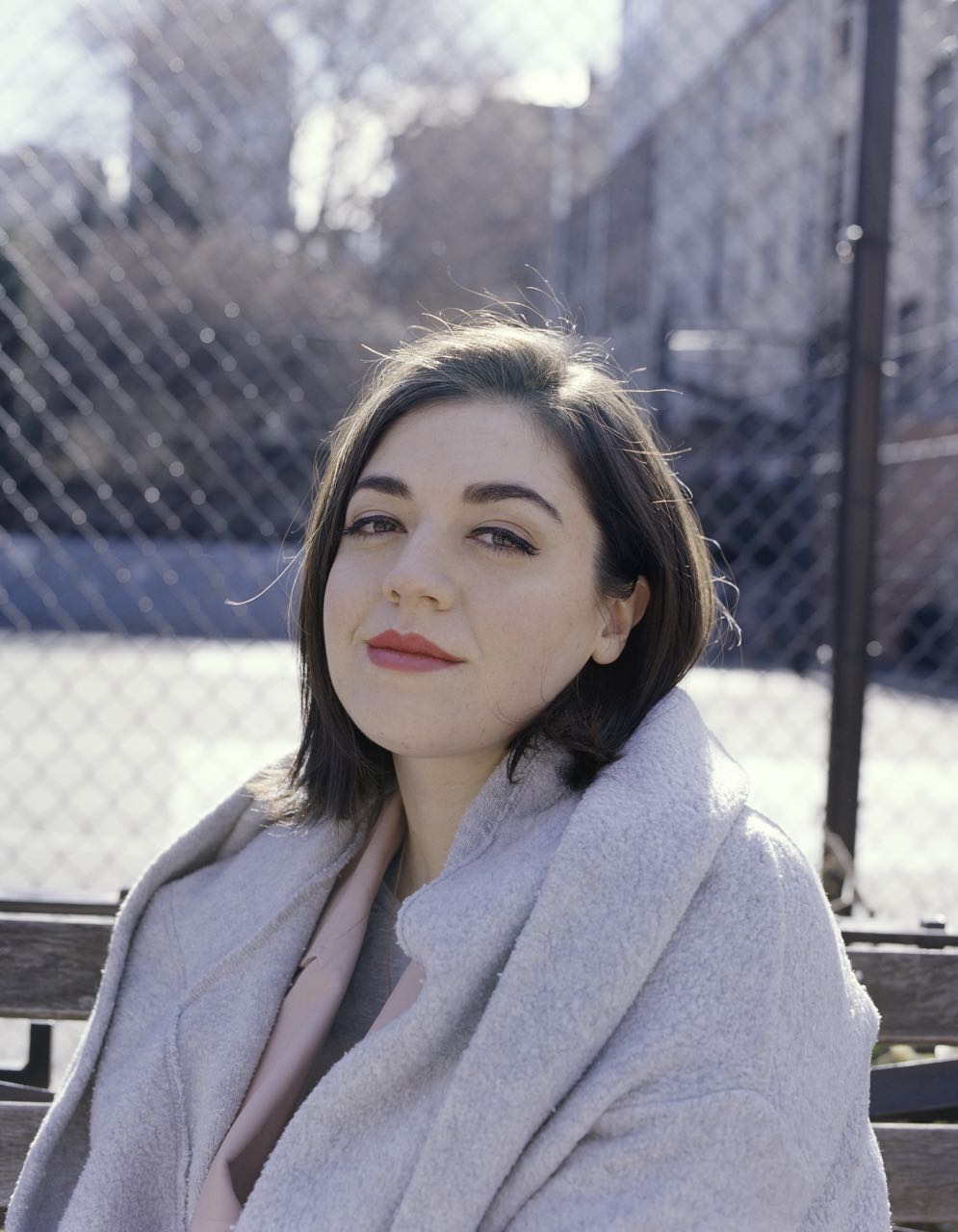
What’s something that you wish you had known about this profession when you were younger that you feel like would have been really helpful to know?
It’s very, very, very hard. Even when you are working, it’s incredibly hard to keep your stamina up and keep focused on why you wanted the job in the first place. And also, every job you have is different, and your job within that job is different. Not every acting job is the same, or your purpose in acting jobs is not always the same, and you kind of are starting from the beginning every time you get a new job because you don’t know who you’re working with or how they work or what’s going to happen over the course of the project. It’s hard to prepare for that, for the unexpected.
Over the next five years, what are your dreams professionally?
I want to start working in film and television because it’s a medium I don’t know a lot about yet. I’m excited to start playing young adult characters instead of teenage characters. I think I’ve done a lot of teenagers, and I’m actually excited to age out of that. I think Janis might be my last one, so she’s a good one to end on.

